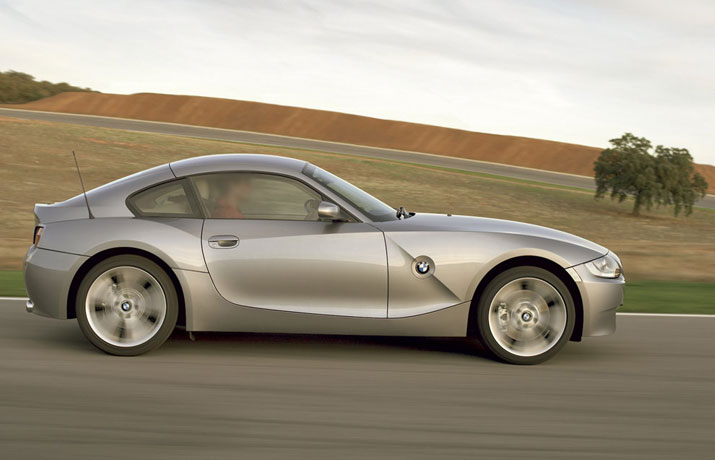

It seemed sporty and had a variety of powerful engines, but the BMW Z4 was more of a contented cruiser than a sharp sports car. The back-wheel drive layout distributed balanced and attractive handling, but a soft suspension set-up means it never felts as receptive as a Porsche Boxster or Audi TT. M Sport models marked a stiffer suspension set-up, but the trade-off was a particularly firm ride.
Unlike the Audi TT or Mercedes SLC, there was no single super-frugal diesel version, but the BMW’s petrol units were prevailing, smooth and sensibly efficient. The last round of design pulls kept the Z4 looking fresh, but nothing was made to fix the compromise of the roadster’s metal top, which took up extreme boot space when stowed. On the whole, it was an open-top sports car that guaranteed plenty, but delivered too little to make a bang in the class.
Contrasting the Mercedes SLK and Audi TT Roadster, the engine line-up of Z4 was absolutely petrol. The range kicked off along with the sDrive18i, which utilized a detuned version of the sharp four-cylinder 2.0-litre turbo engine from the 20i and 28i. According to BMW, it could easily complete the 0-62mph sprint in 8.1 seconds and strike a top speed of 137mph, but it wanted to be worked hard to keep up with flow of traffic. The sDrive20i was a much improved bet in conditions of performance, despite its humble 181bhp power output.
It still accelerated muscularly even from low revs and reacted quickly to the throttle, chiefly when the standard Performance Drive Control was in grand Sport mode – you could also wish from efficient ECO PRO and relaxing Comfort settings. At the peak of the range, were the six-cylinder sDrive35i and sDrive35iS – the second one went head-to-head along with the Boxster S and SLK 55 AMG, with a 0-62mph time of almost 4.8 seconds. It emerged with a seven-speed twin clutch M DCT transmission, which sent smooth and quick shifts by means of the paddles on the steering wheel. Every other model appeared with a six-speed manual gearbox as standard, whereas an eight-speed auto gearbox was offered as an option, and the 35i could be had mainly with the DCT transmission, too.
The most recent BMW Z4 wasn’t collapse tested by Euro NCAP, but the previous model expected a four-star result when it was tested all the way back probably in 2004. However the regular level of safety kit is as comprehensive as you would anticipate from a BMW, and involves the manufacturer’s full Driver Stability Control system, which satisfactorily includes anti-lock brakes and electronic brake-force distribution to maintain the car stable in extreme conditions.
Run-flat tyres are also fixed as standard, along with defensive rollover hoops and a complete host of airbags, together with a pair in the seat headrests to protect you in the occasion of a side-on smash. Incidentally, the hottest Audi TT has been tested by Euro NCAP, and that got only four stars in 2015.